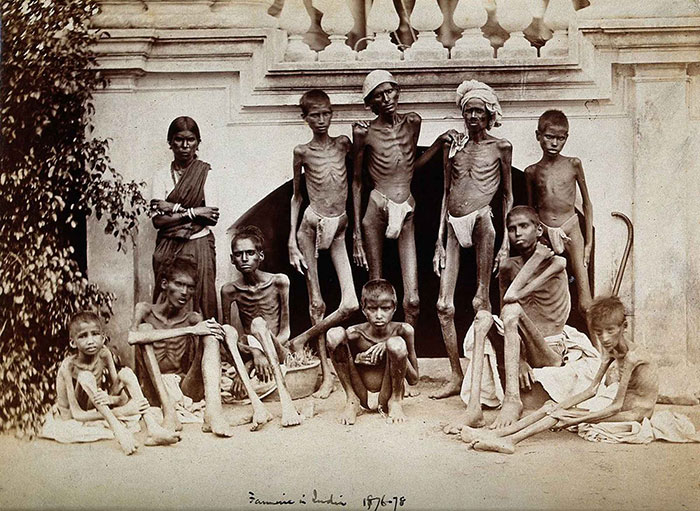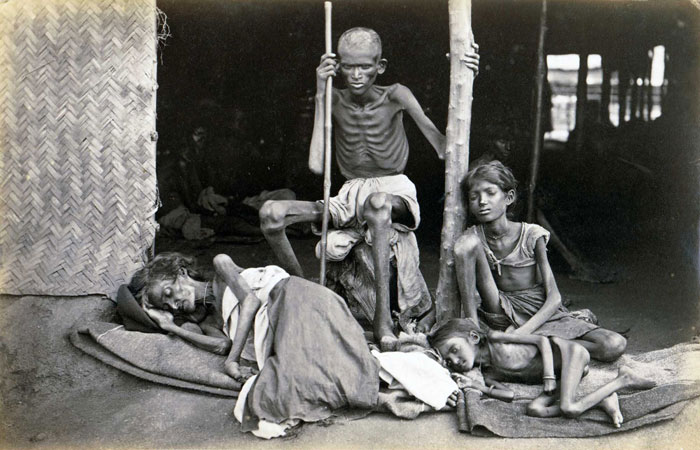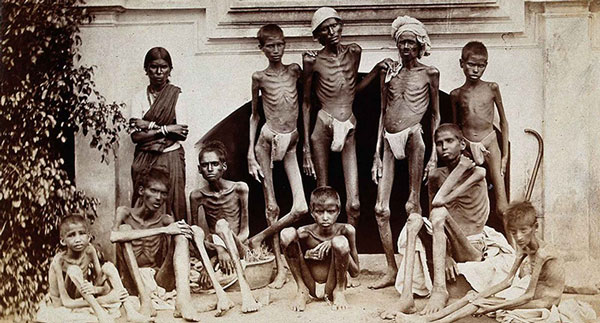The Great Madras Famine of 1876–1878 affected a major part of south India. It caused distress to a population totaling 58,500,000, and eventually took the lives of an estimated 5.5 million women, men and children.
A root cause of the Great Famine may have been caused by an intense drought resulting in crop failure in the Deccan Plateau. However, one of the main reasons also was the regular export of grain by the colonial government led by Lord Lytton.
He oversaw the export to England of a record 6.4 million hundredweight (320,000 ton) of wheat. This substantially weakened the rich cultural and economic strength of southern India, specifically.
What was more disturbing during this hard times was that Viceroy, Lord Lytton held a grand banquet for 60,000 people, in honor of Queen Victoria’s coronation.
The cultivation of alternate cash crops, in addition to the commodification of grain, played a significant role in the unfortunate events. The famine occurred at a time when the colonial government was attempting to reduce expenses on welfare.
During the Bihar famine of 1873–1874, severe mortality had been avoided by importing rice from Burma. But the Government of Bengal and its Lieutenant-Governor, Sir Richard Temple, were criticized for excessive expenditure on charitable relief.
To avoid accusations of excess in 1876, Temple, who was now Famine Commissioner for the Government of India, insisted not only on a policy of laissez faire with respect to the trade in grain, but also on stricter standards of qualification for relief and on more meager relief rations.
Famine stricken people during the famine of 1876-78 in Bangalore.

The death toll in the Great Famine was in the range of 5.5 million people. The severe mortality and the renewed questions and unfair accusations of “relief and protection”, led directly to the constituting of the Famine Commission of 1880 and to the eventual adoption of the Provisional Famine Code in British India.
After the famine, a large number of agricultural laborers and handloom weavers in South India emigrated to British tropical colonies to work as laborers in plantations.
Under the British rule, the agriculture produce was exported outside India to better markets.

The huge numbers of death neutralized the natural population growth in Bombay and Madras during the decade between the first and second censuses of British India in 1871 and 1881.
The Great Famine created a lasting political impact on succeeding events in India. Among the British administrators in India who were unsettled by the official reactions to the famine and, in particular by the stifling of the official debate about the best form of famine relief, were William Wedderburn and A. O. Hume.
A few years later, they would created the Indian National Congress that would influence a generation of Indian nationalists. Among the them were Dadabhai Naoroji and Romesh Chunder Dutt for whom the Great Famine would become a cornerstone of the economic critique of the British Raj.

